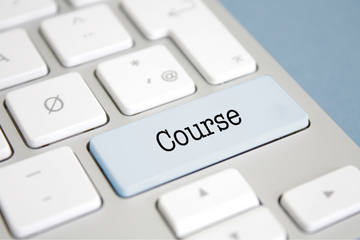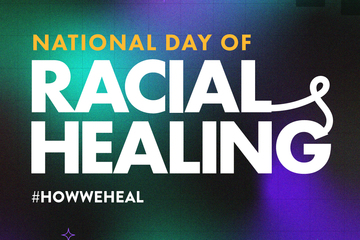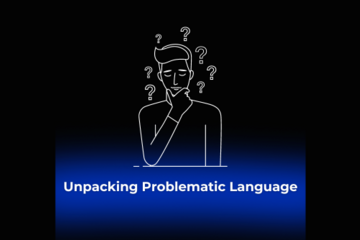Browse
Justice And Belonging
Posted on: Center for Teaching and Learning Innovation

JUSTICE AND BELONGING
New Professional Development Opportunities for Educators
This summer, the Center for Teaching and Learning Innovation is launching two asynchronous courses for educators: Inclusive Pedagogy and Welcome to Teaching. These two courses represent early offerings in what will be an expansive suite of self-paced, asynchronous educator development programming that will roll out throughout the 2025-2026 academic year.
Inclusive Pedagogy CTLI Course
This self-paced course is designed for MSU educators—broadly defined to include not only faculty and instructors, but also advisors, librarians, teaching assistants, instructional designers, coaches, Extension educators, and anyone involved in teaching, learning, or student success. In this course, you’ll explore the foundations of inclusive pedagogy and how it can be applied in your unique context. You’ll engage with videos, readings, reflections, and activities across seven modules, each building toward practical strategies for creating more inclusive educational spaces. The course is now available for self-enroll and offered in D2L.
Welcome to Teaching CTLI Course [Forthcoming in early Fall 2025]
Discover the foundations of effective teaching at MSU through this self-paced online course designed for educators across roles and disciplines. Through CTLI-curated content, you’ll examine key principles of quality instruction, learn practical strategies for creating equitable and engaging learning environments, and build your understanding of pedagogy and instructional design within the context of Michigan State University—all on your own schedule. Whether you're new to teaching or looking to refresh your practice, this course offers a meaningful entry point to MSU’s commitment to teaching and learning for student success.
Inclusive Pedagogy CTLI Course
This self-paced course is designed for MSU educators—broadly defined to include not only faculty and instructors, but also advisors, librarians, teaching assistants, instructional designers, coaches, Extension educators, and anyone involved in teaching, learning, or student success. In this course, you’ll explore the foundations of inclusive pedagogy and how it can be applied in your unique context. You’ll engage with videos, readings, reflections, and activities across seven modules, each building toward practical strategies for creating more inclusive educational spaces. The course is now available for self-enroll and offered in D2L.
Welcome to Teaching CTLI Course [Forthcoming in early Fall 2025]
Discover the foundations of effective teaching at MSU through this self-paced online course designed for educators across roles and disciplines. Through CTLI-curated content, you’ll examine key principles of quality instruction, learn practical strategies for creating equitable and engaging learning environments, and build your understanding of pedagogy and instructional design within the context of Michigan State University—all on your own schedule. Whether you're new to teaching or looking to refresh your practice, this course offers a meaningful entry point to MSU’s commitment to teaching and learning for student success.
Posted by:
Bethany Meadows

Posted on: Center for Teaching and Learning Innovation


New Professional Development Opportunities for Educators
This summer, the Center for Teaching and Learning Innovation is lau...
Posted by:
JUSTICE AND BELONGING
Monday, Jul 14, 2025
Posted on: #iteachmsu

JUSTICE AND BELONGING
Epistemic Justice Fellows: Incorporating Students’ Home and Community Knowledge in Your Course
Please apply here by February 19: https://docs.google.com/forms/d/1N3H76YYEDzlYuN1jZKp3EVy6K7mbo9AivP-142eyd9I
Epistemic Justice Fellows: Incorporating Students’ Home and Community Knowledge in Teaching and Learning
To instructors in the arts, humanities, and natural sciences and STEM fields:
We invite faculty (of any appointment type), academic specialists who teach, and graduate students who teach to apply for the interdisciplinary Epistemic Justice Fellowship for this Spring 2025.
This Fellowship is designed to support instructors who want to add or change an assignment, activity, or module/unit in a course to incorporate students’ home and community knowledge, such as students’ home languages, student knowledge about their communities, or home and community knowledge about the natural world. Incorporating and valuing student experiences as assets can positively impact student learning about subject matter as well as enhance student engagement, enjoyment, and belonging.
Fellows will receive $500 at the conclusion of the fellowship. Fellows are expected to:
Develop a new or change an existing activity/assignment/module to incorporate students’ home or community knowledge, and present this work to the cohort
Provide a collegial community for the rest of the cohort who will also be working on their own courses
Attend three Fellow meetings (most in person) from 10AM-12PM on the following Tuesdays:
February 25: Kickoff - foundational concepts and identifying changes to your courses
March 25: Midpoint meeting - check in and group discussion on fellows’ projects, followed by mini-workshop on “Facilitating Teaching Workshops”
April 22: Presentations of fellows’ change or addition to their courses
Attend the lecture/workshop series connected to this topic, consisting of 3 public talks, some in person and some virtual, throughout the semester (dates TBA - but exceptions/alternatives can be made if those dates are not feasible for a fellow)
Commit to offering a workshop or mentorship opportunity in the future for colleagues in your own field related to valuing home and community knowledge
Please apply here by February 19: https://docs.google.com/forms/d/1N3H76YYEDzlYuN1jZKp3EVy6K7mbo9AivP-142eyd9I
Please note that if you are not sure if your course would be make sense for this fellowship, you are very welcome to contact the organizers at mollelle@msu.edu and troutma1@msu.edu to ask; for example, if you wanted to allow an existing assignment on any topic to be written in the student’s home language for a first draft, that could apply to any subject matter in any course with any writing.
This Fellowship and lecture series are graciously supported by:
Creating Inclusive Excellence Grant from Institutional Diversity and Inclusion
Office of the Assistant Dean for Undergraduate Studies in the College of Arts and Letters
Office of the Assistant Dean for STEM Education in the Office of Undergraduate Education
Organizers: Denise Troutman, Sophie Huss, Ellen Moll
Additional PIs: Kristin Arola, Marcie Ray, Stephen Thomas
Epistemic Justice Fellows: Incorporating Students’ Home and Community Knowledge in Teaching and Learning
To instructors in the arts, humanities, and natural sciences and STEM fields:
We invite faculty (of any appointment type), academic specialists who teach, and graduate students who teach to apply for the interdisciplinary Epistemic Justice Fellowship for this Spring 2025.
This Fellowship is designed to support instructors who want to add or change an assignment, activity, or module/unit in a course to incorporate students’ home and community knowledge, such as students’ home languages, student knowledge about their communities, or home and community knowledge about the natural world. Incorporating and valuing student experiences as assets can positively impact student learning about subject matter as well as enhance student engagement, enjoyment, and belonging.
Fellows will receive $500 at the conclusion of the fellowship. Fellows are expected to:
Develop a new or change an existing activity/assignment/module to incorporate students’ home or community knowledge, and present this work to the cohort
Provide a collegial community for the rest of the cohort who will also be working on their own courses
Attend three Fellow meetings (most in person) from 10AM-12PM on the following Tuesdays:
February 25: Kickoff - foundational concepts and identifying changes to your courses
March 25: Midpoint meeting - check in and group discussion on fellows’ projects, followed by mini-workshop on “Facilitating Teaching Workshops”
April 22: Presentations of fellows’ change or addition to their courses
Attend the lecture/workshop series connected to this topic, consisting of 3 public talks, some in person and some virtual, throughout the semester (dates TBA - but exceptions/alternatives can be made if those dates are not feasible for a fellow)
Commit to offering a workshop or mentorship opportunity in the future for colleagues in your own field related to valuing home and community knowledge
Please apply here by February 19: https://docs.google.com/forms/d/1N3H76YYEDzlYuN1jZKp3EVy6K7mbo9AivP-142eyd9I
Please note that if you are not sure if your course would be make sense for this fellowship, you are very welcome to contact the organizers at mollelle@msu.edu and troutma1@msu.edu to ask; for example, if you wanted to allow an existing assignment on any topic to be written in the student’s home language for a first draft, that could apply to any subject matter in any course with any writing.
This Fellowship and lecture series are graciously supported by:
Creating Inclusive Excellence Grant from Institutional Diversity and Inclusion
Office of the Assistant Dean for Undergraduate Studies in the College of Arts and Letters
Office of the Assistant Dean for STEM Education in the Office of Undergraduate Education
Organizers: Denise Troutman, Sophie Huss, Ellen Moll
Additional PIs: Kristin Arola, Marcie Ray, Stephen Thomas
Posted by:
Stephen Thomas
Posted on: #iteachmsu

Epistemic Justice Fellows: Incorporating Students’ Home and Community Knowledge in Your Course
Please apply here by February 19: https://docs.google.com/for...
Posted by:
JUSTICE AND BELONGING
Tuesday, Feb 18, 2025
Posted on: Center for Teaching and Learning Innovation

JUSTICE AND BELONGING
2025 National Day of Racial Healing (January 21)
2025's National Day of Racial Healing will occur on Tuesday, January 21. The American Association of Colleges and Universities has called on colleges and universities to "engage in activities, events, or strategies that promote healing, foster engagement around issues of racism, bias, inequity, and injustice, and build an equitable and just society where all individuals can thrive" as part of the National Racial Day of Healing. The National Day of Racial Healing is "a time to contemplate our shared values and create the blueprint together for #HowWeHeal from the effects of racism. Launched in 2017, it is an opportunity to bring [all] people together and inspire collective action to build common ground for a more just and equitable world." As part of this commitment, educators may consider engaging in events during the week, participate in the #HowWeHeal hashtag, and bringing awareness to the day with students. Some activities and events within the MSU and Lansing community includes:
Read the #HowWeHeal Conversation Guide
Watch the "Changing the Narrative" series
Attend the MSU's 2025 MLK Student Symposium
Attend Lansing's Beloved Community Week
Attend MSU Libraries' Social Justice Film and Discussion on: Fannie Lou Hamer's America
Read the #HowWeHeal Conversation Guide
Watch the "Changing the Narrative" series
Attend the MSU's 2025 MLK Student Symposium
Attend Lansing's Beloved Community Week
Attend MSU Libraries' Social Justice Film and Discussion on: Fannie Lou Hamer's America
Posted by:
Bethany Meadows

Posted on: Center for Teaching and Learning Innovation


2025 National Day of Racial Healing (January 21)
2025's National Day of Racial Healing will occur on Tuesday, Januar...
Posted by:
JUSTICE AND BELONGING
Wednesday, Jan 15, 2025
Posted on: Center for Teaching and Learning Innovation

JUSTICE AND BELONGING
Guidebook: Building Intentionality, Care, and Trust Toolkits
The below guidebook overviews intentionality and inclusivity in teaching as well as care-based pedagogy and strategies.
24FA_Building Intentionality, Care, & Trust by Bethany Meadows
24FA_Building Intentionality, Care, & Trust by Bethany Meadows
Authored by:
Bethany Meadows

Posted on: Center for Teaching and Learning Innovation


Guidebook: Building Intentionality, Care, and Trust Toolkits
The below guidebook overviews intentionality and inclusivity in tea...
Authored by:
JUSTICE AND BELONGING
Monday, Oct 7, 2024
Posted on: Center for Teaching and Learning Innovation

JUSTICE AND BELONGING
Unpacking Problematic Language: Overview
This post provides an overview of problematic language as part of the Inclusive Pedagogy playlist.
Our language use is influenced by social and cultural factors. Those factors sometimes can make us unaware of the impact of our words. One way to prevent unintentional harm is to be more aware of inclusive language practices. However, inclusive language can be more than just avoiding offense or being “politically correct”; instead, it is a “communication style that is genuinely curious about how to talk to and about our fellow humans respectfully” (Acrolinx). Inclusive language use works to “honor the diverse identities of every person in the room and invites them to be part of the conversation” (Relias).
When we prioritize an inclusive language environment, everyone feels more welcome and learning is more able to take place. Within this, we do not want to shame people when they make a mistake, as that would also not be welcoming. Rather, we try to gently reframe their language use, such as through the P.A.L.S. method.
Many inclusive language guides exist to learn more about certain problematic terms and legacies:
MSU Brand Studio
MSU’s Gender and Sexuality Campus Center
MSU’s College of Natural Science Guide
University of Washington’s Information Technology
Pratt Institute Libraries’ article
Writer’s Inclusive language in the workplace guide
Language is a living entity that changes for building common and shared understandings. Boston University curates a Living Language Guide. As a note of caveat, sometimes people claim that certain phrases and words were more socially acceptable in the past, but it is important to note that, generally, language use that is problematic usually has a longer legacy of harm that was problematic—even in the past. It is up to us now to make ourselves and others more aware of the impact of that language. Similarly, sometimes people find it difficult to “keep up” with understanding language, and that can feel really difficult. To counteract that, educators can build in time to practice more inclusive phrases with trusted people. In addition, it’s important to remember that the more one can learn and better understand harmful legacies of terms, then the more belonging learners will feel.
Some reflection questions for educators to reflect on their language and intentionality, include:
How do I define and practice inclusive language in my classroom? How do I foster a classroom culture where inclusive language is encouraged among students?
What steps do I take to ensure my language includes all students, considering gender, race, ability, and additional identities? How intentional am I in using gender-neutral terms, pronouns, and respectful language? How do I incorporate diverse identities into my communication?
How do I ensure my language is respectful and accurate when discussing sensitive or identity-related topics?
How do I educate myself on terms related to various identities and groups? How can I stay informed and continuously adapt my language to reflect evolving societal and student needs?
How do I respond when non-inclusive language is pointed out, and how open am I to making changes?
What processes do I use to reflect on and improve intentional and inclusive language? How do I check for unintentional bias in my language and course materials?
Continue to read more about inclusive pedagogy in the next article on Inclusive Syllabi or return to the Inclusive Pedagogy playlist.
Our language use is influenced by social and cultural factors. Those factors sometimes can make us unaware of the impact of our words. One way to prevent unintentional harm is to be more aware of inclusive language practices. However, inclusive language can be more than just avoiding offense or being “politically correct”; instead, it is a “communication style that is genuinely curious about how to talk to and about our fellow humans respectfully” (Acrolinx). Inclusive language use works to “honor the diverse identities of every person in the room and invites them to be part of the conversation” (Relias).
When we prioritize an inclusive language environment, everyone feels more welcome and learning is more able to take place. Within this, we do not want to shame people when they make a mistake, as that would also not be welcoming. Rather, we try to gently reframe their language use, such as through the P.A.L.S. method.
Many inclusive language guides exist to learn more about certain problematic terms and legacies:
MSU Brand Studio
MSU’s Gender and Sexuality Campus Center
MSU’s College of Natural Science Guide
University of Washington’s Information Technology
Pratt Institute Libraries’ article
Writer’s Inclusive language in the workplace guide
Language is a living entity that changes for building common and shared understandings. Boston University curates a Living Language Guide. As a note of caveat, sometimes people claim that certain phrases and words were more socially acceptable in the past, but it is important to note that, generally, language use that is problematic usually has a longer legacy of harm that was problematic—even in the past. It is up to us now to make ourselves and others more aware of the impact of that language. Similarly, sometimes people find it difficult to “keep up” with understanding language, and that can feel really difficult. To counteract that, educators can build in time to practice more inclusive phrases with trusted people. In addition, it’s important to remember that the more one can learn and better understand harmful legacies of terms, then the more belonging learners will feel.
Some reflection questions for educators to reflect on their language and intentionality, include:
How do I define and practice inclusive language in my classroom? How do I foster a classroom culture where inclusive language is encouraged among students?
What steps do I take to ensure my language includes all students, considering gender, race, ability, and additional identities? How intentional am I in using gender-neutral terms, pronouns, and respectful language? How do I incorporate diverse identities into my communication?
How do I ensure my language is respectful and accurate when discussing sensitive or identity-related topics?
How do I educate myself on terms related to various identities and groups? How can I stay informed and continuously adapt my language to reflect evolving societal and student needs?
How do I respond when non-inclusive language is pointed out, and how open am I to making changes?
What processes do I use to reflect on and improve intentional and inclusive language? How do I check for unintentional bias in my language and course materials?
Continue to read more about inclusive pedagogy in the next article on Inclusive Syllabi or return to the Inclusive Pedagogy playlist.
Authored by:
Bethany Meadows

Posted on: Center for Teaching and Learning Innovation


Unpacking Problematic Language: Overview
This post provides an overview of problematic language as part of t...
Authored by:
JUSTICE AND BELONGING
Monday, Sep 30, 2024
Posted on: MSU Academic Advising


Posted by
12 months ago
VIRTUAL Conference on Higher Education Values, Identity, Belonging and Purpose and Call for Proposals: https://seswps.umkc.edu/conference/index.html
Posted on: #iteachmsu

JUSTICE AND BELONGING
Setting the Tone from the Start
The Setting the Tone from the Start workshop and its associated resources are meant to support course instructors to intentionally design the start of their courses, including practices for before and during the first class session that help connect you to your students and build community. In August 2024, it was held as part of the CTLI's Semester Start-Up programming for MSU educators. We shared actionable strategies that lay the groundwork for an engaging and inclusive course experience from day one including items related to:
syllabi, expectation setting, and pedagogical transparency
checking in on learner needs throughout the term
building classroom community
We ended the workshop by completing individualized Action Plans where instructors listed their next steps (immediate, during the semester, and before next semester) framed as S.M.A.R.T. goals. You can adapt this Action Plan for a mid-semester context, as well as prepare for the next term.You can access the slide deck for this workshop here including links to many MSU resources for course instructors.A recording of the Fall 2023 version of this workshop, facilitated by Makena Neal and Ellie Louson, is available below.Feel free to reach out to CTLI Educational Developers Ellie Louson and/or Bethany Meadows (Inclusive Pedagogy Specialist), if you have any questions about Setting the Tone from the Start or these resources.Photo by Brooke Cagle on Unsplash
syllabi, expectation setting, and pedagogical transparency
checking in on learner needs throughout the term
building classroom community
We ended the workshop by completing individualized Action Plans where instructors listed their next steps (immediate, during the semester, and before next semester) framed as S.M.A.R.T. goals. You can adapt this Action Plan for a mid-semester context, as well as prepare for the next term.You can access the slide deck for this workshop here including links to many MSU resources for course instructors.A recording of the Fall 2023 version of this workshop, facilitated by Makena Neal and Ellie Louson, is available below.Feel free to reach out to CTLI Educational Developers Ellie Louson and/or Bethany Meadows (Inclusive Pedagogy Specialist), if you have any questions about Setting the Tone from the Start or these resources.Photo by Brooke Cagle on Unsplash
Authored by:
Ellie Louson

Posted on: #iteachmsu


Setting the Tone from the Start
The Setting the Tone from the Start workshop and its associated res...
Authored by:
JUSTICE AND BELONGING
Monday, Sep 16, 2024
Posted on: #iteachmsu

JUSTICE AND BELONGING
Developing and Sustaining Community: NSSC Pathway Programs
Topic Area: Student Success
Presented by: Perry Fittrer, Jonglim Han, Christina Bridges, Dominique Devereaux
Abstract:
This session will present how three different student success programs maintained student sense of belonging and community in a virtual setting. The Detroit MADE Scholars, Dow STEM Scholars and TRIO Student Support Services programs are all cohort based student support programs housed within the Neighborhood Student Success Collaborative unit. Each program strives to close opportunity gaps for a variety of underserved student populations. Through the pandemic each program has utilized creative and unique forms of student engagement to keep students connected to MSU and program communities. This session will explore the importance of community, sense of belonging, and identity to student success while providing examples of program specific and collaborative efforts to provide these elements virtually.
Session Resources:
Developing and Sustaining Community-NSSC Path (PDF)
Presented by: Perry Fittrer, Jonglim Han, Christina Bridges, Dominique Devereaux
Abstract:
This session will present how three different student success programs maintained student sense of belonging and community in a virtual setting. The Detroit MADE Scholars, Dow STEM Scholars and TRIO Student Support Services programs are all cohort based student support programs housed within the Neighborhood Student Success Collaborative unit. Each program strives to close opportunity gaps for a variety of underserved student populations. Through the pandemic each program has utilized creative and unique forms of student engagement to keep students connected to MSU and program communities. This session will explore the importance of community, sense of belonging, and identity to student success while providing examples of program specific and collaborative efforts to provide these elements virtually.
Session Resources:
Developing and Sustaining Community-NSSC Path (PDF)
Authored by:
Perry Fittrer, Jonglim Han, Christina Bridges, Dominique ...

Posted on: #iteachmsu


Developing and Sustaining Community: NSSC Pathway Programs
Topic Area: Student Success
Presented by: Perry Fittrer, ...
Presented by: Perry Fittrer, ...
Authored by:
JUSTICE AND BELONGING
Wednesday, Jul 31, 2024
